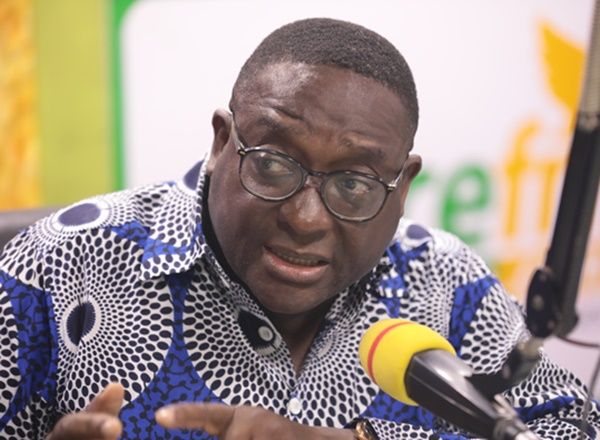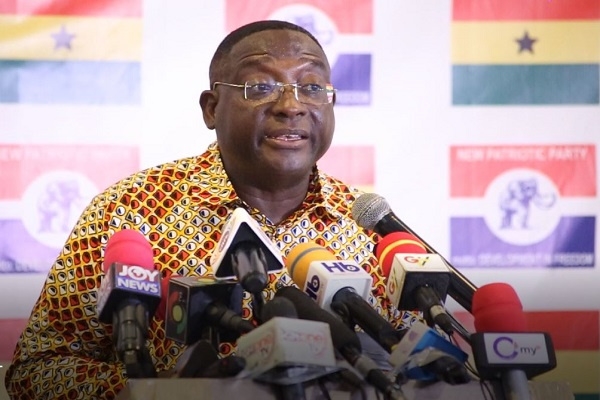Director of Communications for the governing New Patriotic Party (NPP), Yaw Buaben Asamoa has blamed Ghana’s credit rating downgrades by international rating agencies such as Moody’s and Fitch on the ‘rancorous noise’ that has greeted the controversial Electronic Transaction levy (E-Levy).

According to him, the international rating agencies believe in the power of the E-levy to help in Ghana’s economic recovery process in the midst of the Covid-19 pandemic.
The former Adentan MP, however, mentioned that the agencies were also mindful of the political atmosphere surrounding the announcement of the levy.
This is after he had detailed the ravaging effects of Covid-19 on world economies with Ghana being no exception.
“Unfortunately, the E-Levy has become one of the hot quagmires that is our hung parliament. Actions in parliament show clearly that the NDC intends to exploit its numbers in full in pursuit of political gain, never minding any danger to nationalists’ ideals.
“From the contentious election of a Speaker to the passage of government intended revenue policies, Parliament continues to see fierce engagements from both sides of the house but we believe we have risen above it all.
“The important thing is that the international community has noticed, civil society is participating. That notice from the international community about the E-Levy and otherwise, and the loud rancorous noises is what has led Fitch, Moody’s, Standard and Poor to give mix reviews about Ghana on their latest round of assessments.
“Those assessments are meant to test economic health but they take major account of the political temperature on which the economic health depends. All the rating agencies believe our economy is inherently sound based on strong performance pre and during the pandemic,” Buaben Asamoa said.
Moody’s Investors Service (“Moody’s”) on Saturday, February 5, downgraded the Government of Ghana’s long-term issuer and senior unsecured debt ratings to Caa1 from B3 and changed the outlook to stable from negative.
The downgrade to Caa1 reflects the increasingly difficult task the government faces addressing its intertwined liquidity and debt challenges.
Weak revenue generation constrains the government’s budget flexibility and tight funding conditions on international markets have forced the government to rely on costly debt with shorter maturity.
Another international rating agency, Fitch, also downgraded Ghana’s Long-Term Foreign-Currency Issuer Default Rating (IDR) to ‘B-‘ from ‘B’. The Outlook is Negative.


